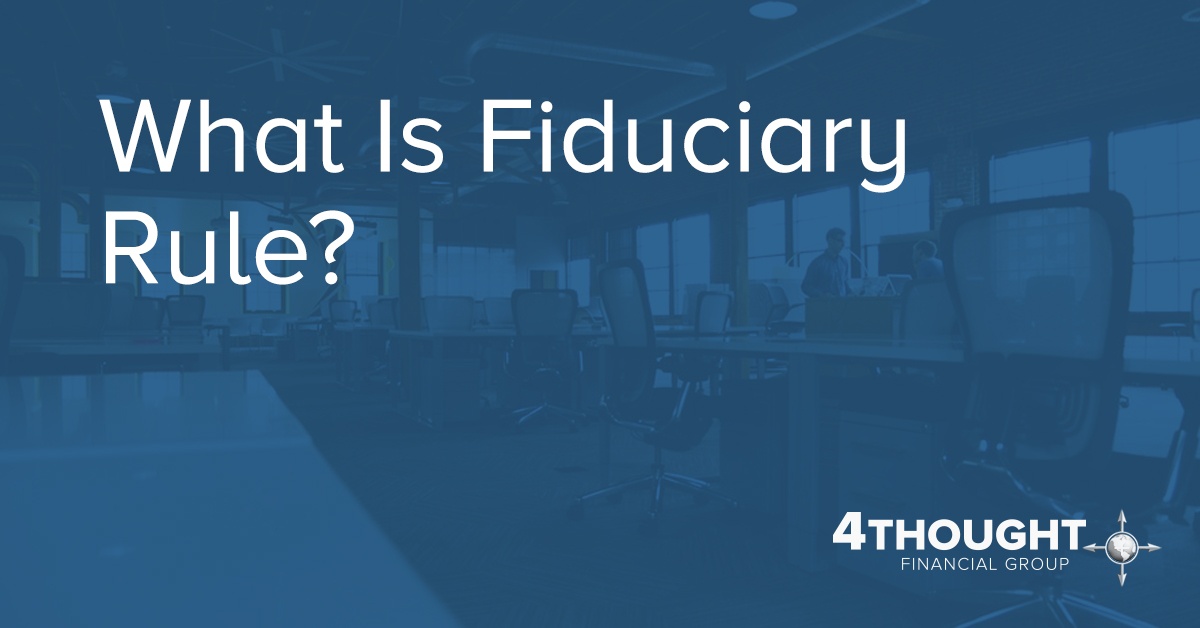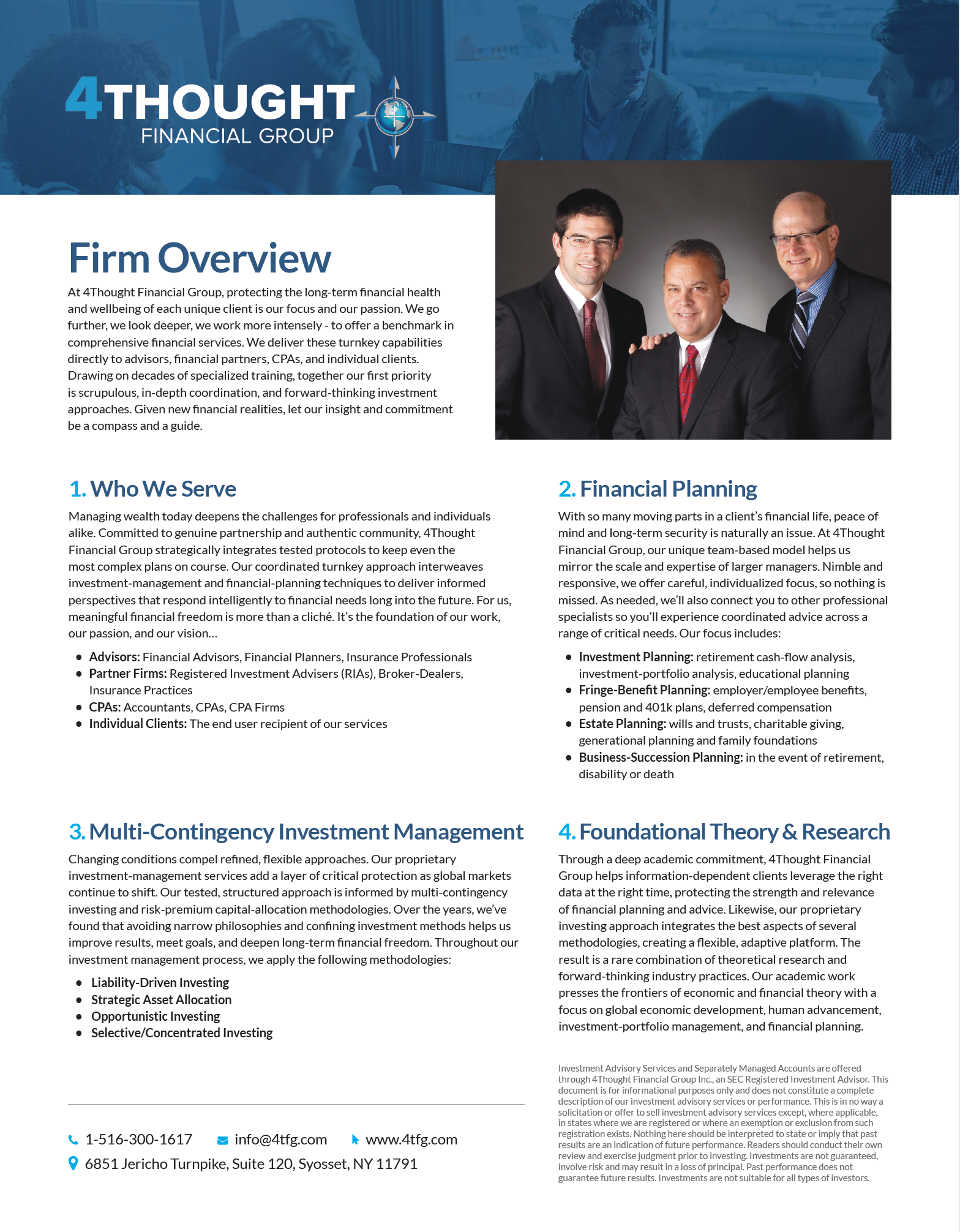

4Thought Financial Group Firm Overview
"Protecting the long-term financial health and wellbeing of each unique client is our focus and our passion. Drawing on decades of specialized training and experience, let our insight and commitment be a compass and a guide."
The Fiduciary Rule is a controversial United States federal rule that came into being during the Obama administration. Intended as a way to mitigate conflicts of interest arising between financial advisors and their clients, the rule was due to take force on April 10, 2017. However, it has been delayed by newly elected President Trump until at least June 9, 2017.
Background
Prior to the introduction of the Fiduciary Rule, financial advice relating to retirement investments had historically been governed under the Employee Retirement Income Security Act of 1974 (ERISA). An attempt to reform the Act was made in 2010, but it was subsequently shelved due to opposition voiced by the financial industry over client protections and various regulatory concerns.
It wasn't until 2015 that President Obama decided to tackle the issue head-on. Stating that anyone who wanted to give financial advice had to "put your client's interests first," the President tasked the Department of Labor with raising the standard of accountability for retirement advisors from that of a duty of suitability to that of the highest legal duty, fiduciary.
...the Department of Labor now considers anyone who gives financial advice on retirement investments - whether they receive direct payment or not - as being fiduciaries.
Before 2015, the only retirement advisors held accountable to the fiduciary standard were those who were deemed to have charged a direct fee for their services, usually by way of a hourly rate, ongoing retainer, or asset-based investment advisory fee.
However, with the introduction of the Fiduciary Rule, the Department of Labor now considers anyone who gives financial advice on retirement investments - whether they receive direct payment or not - as being fiduciaries. The DOL includes the following as falling under the remit of the Fiduciary Rule:
[I]nvestment advice about buying, holding or selling securities or other investment property in your retirement accounts, including recommendations to roll over your account, purchase an annuity or take a distribution from your 401(k) plan or IRA. Investment advice also includes recommendations as to investment policies or strategies, portfolio composition, selection of other persons to provide investment advice or investment management services, or the selection of investment account arrangements (e.g., accounts where you pay brokerage commissions for individual investment transactions versus accounts for which you pay an overall advisory fee and generally don't pay commissions on individual transactions).
Protections Under the Fiduciary Rule
Ultimately, the Fiduciary Rule is intended to protect the customer, although not all stakeholders agree that it will. The new guidelines require that advisors satisfy the following expectations:
- They give prudent advice when making investment recommendations that meet the professional standard of care.
- They do not make misleading claims about the investments, fees or apparent conflicts of interest that arise from their recommendations.
- They give loyal advice that puts the client's interest first.
- They do not charge exorbitant or unfair fees for their advice.
- They disclose basic and relevant information pertaining to the fees they charge and potential conflicts of interest.
- They adhere to a formal set of policies and procedures that ensures the advice they give is not detrimental to the client's interest.
Going Forward
Despite the best intentions of the new rule, it has come under fierce criticism from certain quarters, some of whom argue that the unintended consequences of the rule may leave consumers worse-off than they are now. The asset management firms of BlackRock and Vanguard called for an extended moratorium on the implementation of the guidelines, with the DOL responding that:
...it would be inappropriate to broadly delay application of the fiduciary definition and Impartial Conduct Standards for an extended period in disregard of its previous findings of ongoing injury to retirement investors.
The DOL believes that around $17 billion a year will be saved by consumers with the introductions of the updated protections. As to how the Fiduciary Rule plays out when it comes into force, we will simply have to wait and see.






Leave a Comment